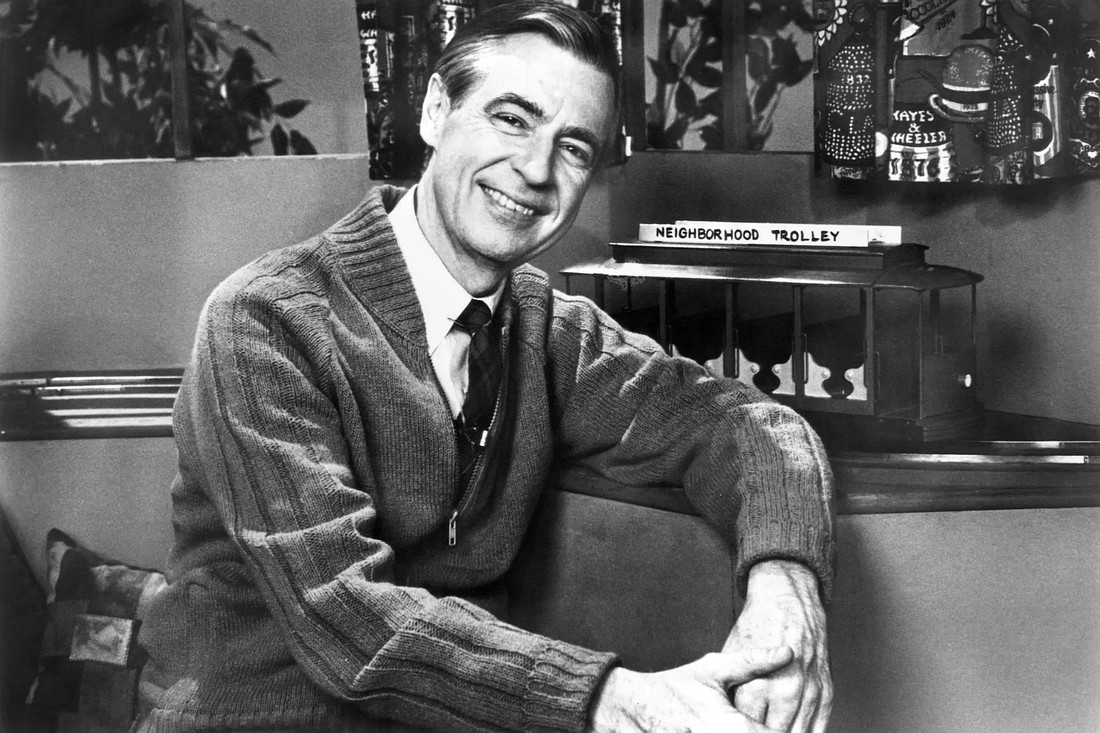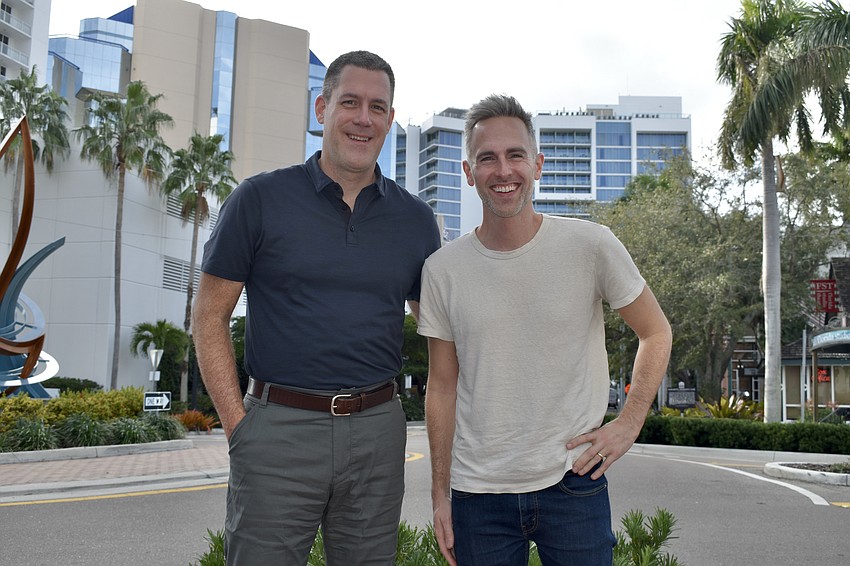- April 8, 2025
-
-
Loading

Loading

Those who grew up watching "Mister Rogers’ Neighborhood" likely felt they could call its host Fred Rogers their neighbor.
But for authors Greg Behr and Ryan Rydzewski, who grew up in Fred Rogers' home town of Pittsburgh, it was even more real, because Rogers' legacy intersected with their own lives in multiple ways.
Both men revere Rogers as the host of a great children's program and as one of the greatest educators of all time. Although they've shared their reasons why with the world, they said they have been especially excited to do so in Sarasota.
Here, they said, the public has embraced their message to an extent that is unprecedented across the country.

In 2023, the The Patterson Foundation in Sarasota, the supporter of the Suncoast Campaign for Grade-Level Reading, created a program around Behr and Rydzewski's book, “When You Wonder, You're Learning: Mister Rogers' Enduring Lessons for Raising Creative, Curious, Caring Kids."
Any group of six or more people interested in the book received support from the foundation, which resulted in a total of 144 book circles and 1,078 people in the region joining together to discuss the book.
“We were thrilled with the response,” said Beth Duda, director of Suncoast Campaign for Grade-Level Reading.
She said an event held at Michael's on East on Jan. 24, in celebration of the initiative encouraged attendees to embrace the spirit of the book.
“I think it reminds us all of the wonder of learning, that we're eager to learn the things that we are curious about … and I think Mister Rogers reminds us that that inspiration is important, and that we should follow our interests, and be curious and interested in others, and understand that there are many wondrous things in the world to learn about and to keep our curiosity alive.”
Suncoast Remake Learning Days, another initiative supported by The Patterson Foundation, has played a prominent role in Sarasota since it came to the area in 2016, but some may not realize that the program traces its roots back to Pittsburgh.
“We've developed this really wonderful relationship between Pittsburgh and Sarasota,” Behr said.
There is perhaps no connection to a place that promises to shed more light on the legacy of Mister Rogers, than one with Pittsburgh.
Pittsburgh was a place where Fred Rogers could be seen walking the streets and visiting the local bakery. The museums, factories and playgrounds to which Rogers took his young viewers were all real fixtures of the community and part of Behr and Rydzewski's lives.
Many of their friends today have appeared on the show. Rydzewski’s teacher played the role of Purple Panda. Many people in Pittsburgh have stories about Rogers.
But, of course, the pair both have their own stories as well.

Behr had the chance to meet Mister Rogers, while he also came to befriend his widow Joanne Rogers during the last decade of her life, with Rydzewski receiving the chance to meet her as well.
Behr's meeting with Mister Rogers took place a few years before Rogers' death in 2003 and came about thanks to Bill Eisler, who was then president of Fred Rogers Productions.
Behr recalls being suddenly taken back to the days of his childhood.
“It's the same person. Fred wasn't an act. Fred Rogers was Fred Rogers, and I experienced that myself,” he said.
What was it about Rogers' persona that created such an emotional connection for generations of people, with his series becoming a fixture on American TV for over four decades and running for over 1,000 episodes?
He truly was the kind man in the sweater, the authors said, but they also emphasized his effect on audiences was far from magic; he had a method behind the emotions he created.
The aim of their book is to uncover that method by drawing from sources that include the production team of the show and academic papers on education.
Behr said as he and Rydzewski read papers by scientists at institutions like Carnegie Mellon University and Stanford University, they increasingly read like scripts from "Mister Rogers’ Neighborhood."
How do educators stir those same emotions — those feelings of safety, warmth and belonging, the key to creating an environment where children can learn?
Mister Rogers’ famous cardigan was no accident, said the authors. The sweater itself was a signal to viewers that the show offered a place to become comfortable and experience a sense of safety and security.
Similarly, a touch as simple as a red carpet at the doorway to a classroom can help create a welcoming environment for students, they said.
“There's so many studies that reveal to us the importance of that sense of belonging, that I'm loved, that I'm capable of loving, and that this is a safe place for me and a safe place to ask all sorts of questions and to bring my full, complicated self,” Behr said.
Another way educators can be effective, they said, is by being like Fred Rogers — by being willing to listen.

“He let people share their joys and their fears and their anxieties. It's something that all of us can do all of us can learn from today,” Rydzewski said.
Someone else who was also intent on passing on Rogers' legacy was the late Joanne Rogers, who wrote the foreword to Behr and Rydzewski's book.
An advocate for children, Joanne Rogers was described by Behr as a fitting companion for Fred Rogers.
“Joanne was the sort of person, well, first of all, she just had a hearty laugh, and if she gave you a hug, which she often did — she was definitely a hugger — you just felt like you could conquer the world," he said.
As Behr and Rydzewski bring Fred Rogers' methods into the future, they emphasized, to the attendees at the event at Michael's on East, that they are excited to share their message in Sarasota.
Behr said although there are geographically focused foundations around the country they hold in high esteem, it is The Patterson Foundation in Sarasota they think of as a cousin.
They said the Suncoast Campaign for Grade-Level Reading is probably the best of any similar area program in the country.
“It feels like a dream. I can't believe they're reading our book, of all the books that they could read,” Rydzewski said. “We're so lucky. We're so fortunate to be here, we’re just so grateful.”